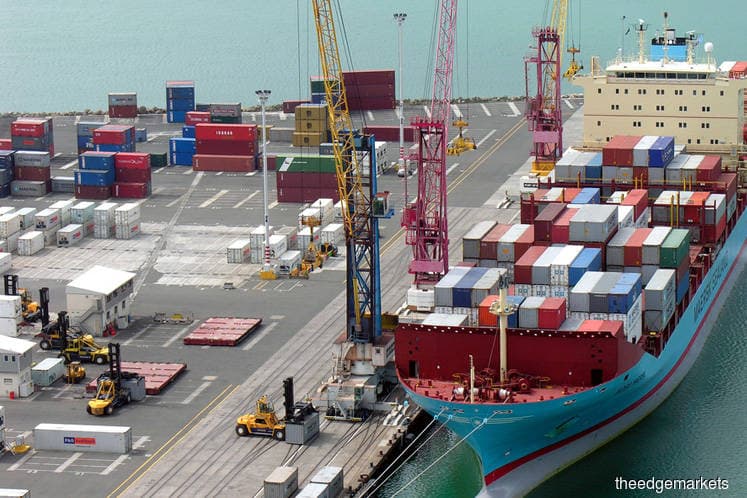
KUALA LUMPUR (Aug 1): Malaysia's export growth is expected to moderate to 1.1% year-on-year (y-o-y) in June, from 2.5% y-o-y in May, says RAM Rating Services Bhd.
The local rating agency said this is partly attributable to the Hari Raya festive holidays last month and generally more subdued global trade.
In line with its sustained export performance, imports are forecast to increase 1.6% y-o-y in June, it added.
"This will bring Malaysia's overall trade surplus to RM5.7 billion in June," RAM said in a statement today.
Malaysia is due to release its trade data tomorrow (Aug 2).
Looking ahead, RAM warned that the Japan-South Korea trade row is envisaged to exert further downside pressure on weak regional trade momentum, particularly for the electrical and electronics (E&E) supply chain.
This follows Japan's decision to impose restrictions on exports of high-technology chemicals to South Korea effective July 4.
"Given Japan's dominance in the supply of these high-technology materials (accounting for a reported 90% of global supply), this will likely exacerbate the already sluggish outlook on South Korea's E&E exports," said RAM.
The agency noted that the direct impact on Malaysia's exports from a potential shortfall in supply and a potential loss in demand from South Korea, however, appears limited as the former does not rely heavily on the latter's E&E sector.
"That said, Malaysia could be indirectly affected via a disrupted global E&E production chain. The latest escalation in trade tensions between Japan and South Korea poses key downside risks to the global supply chain for E&E products, especially given the latter's dominance in the supply of memory chips," it said.
RAM head of research Kristina Fong said although first-degree effects may not be significant for Malaysia, the potential over-arching supply bottlenecks for key inputs such as these chips in the short term may further stifle the technology cycle and retard the growth of the global E&E industry.
"That said, there may still be some room for trade-diversion benefits for Malaysia, in a bid to manage bottlenecks in the supply chain for inputs arising from export restrictions. Demand may be diverted to Malaysian firms.
"Global E&E players could also capitalise on the existing infrastructure and scale up their output capacity in Malaysia if they decide to diversify their production away from South Korea," she added.